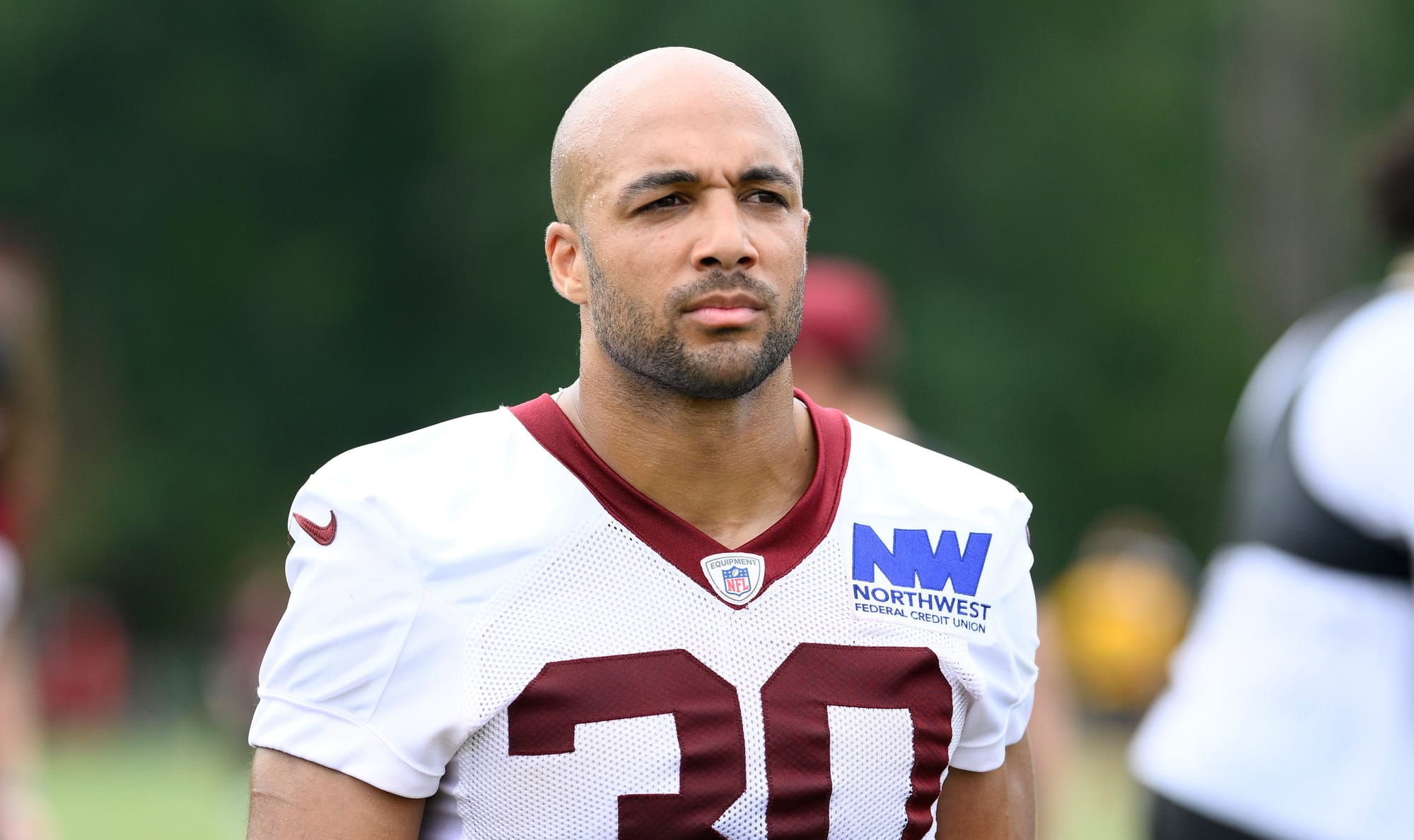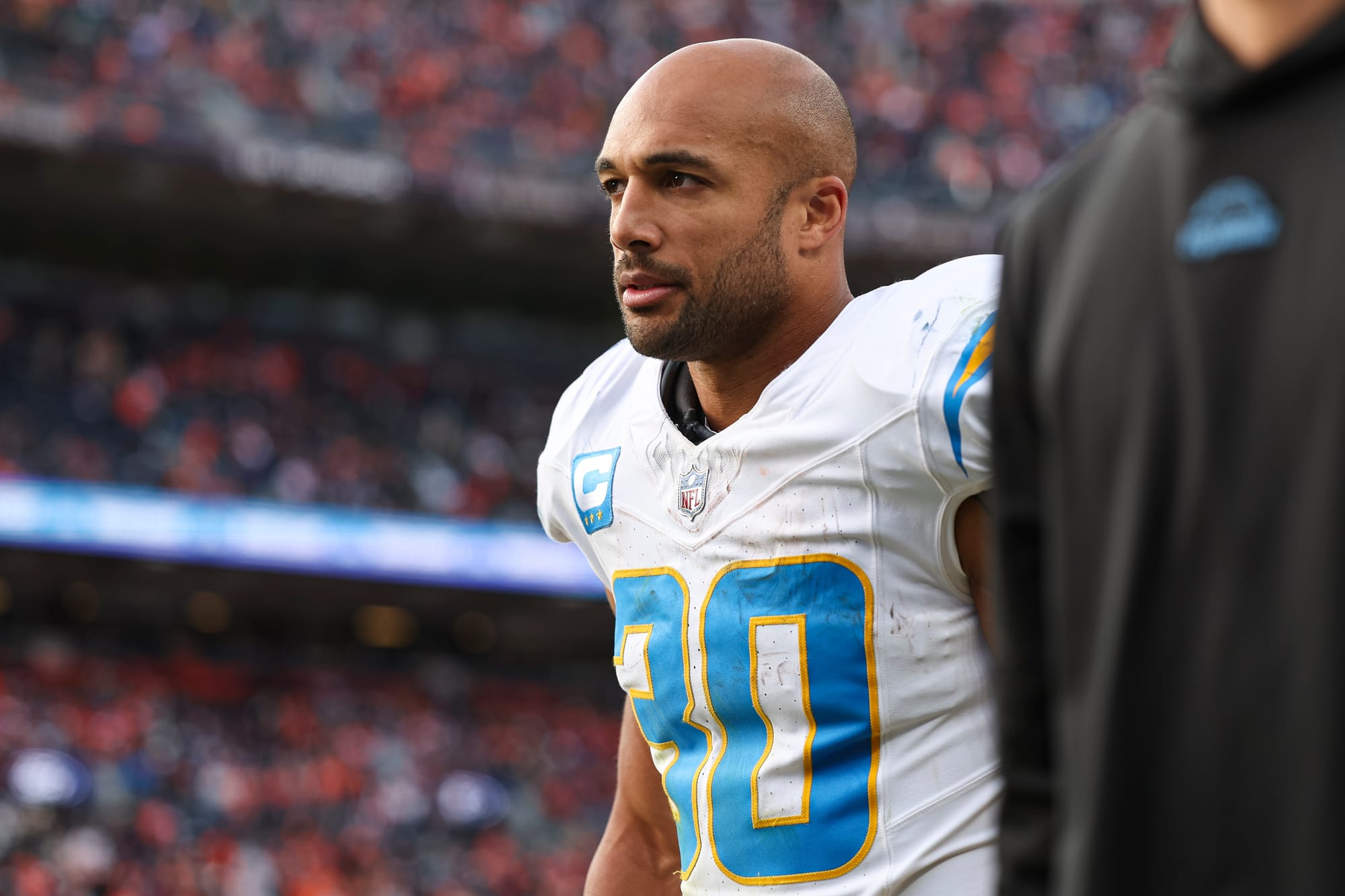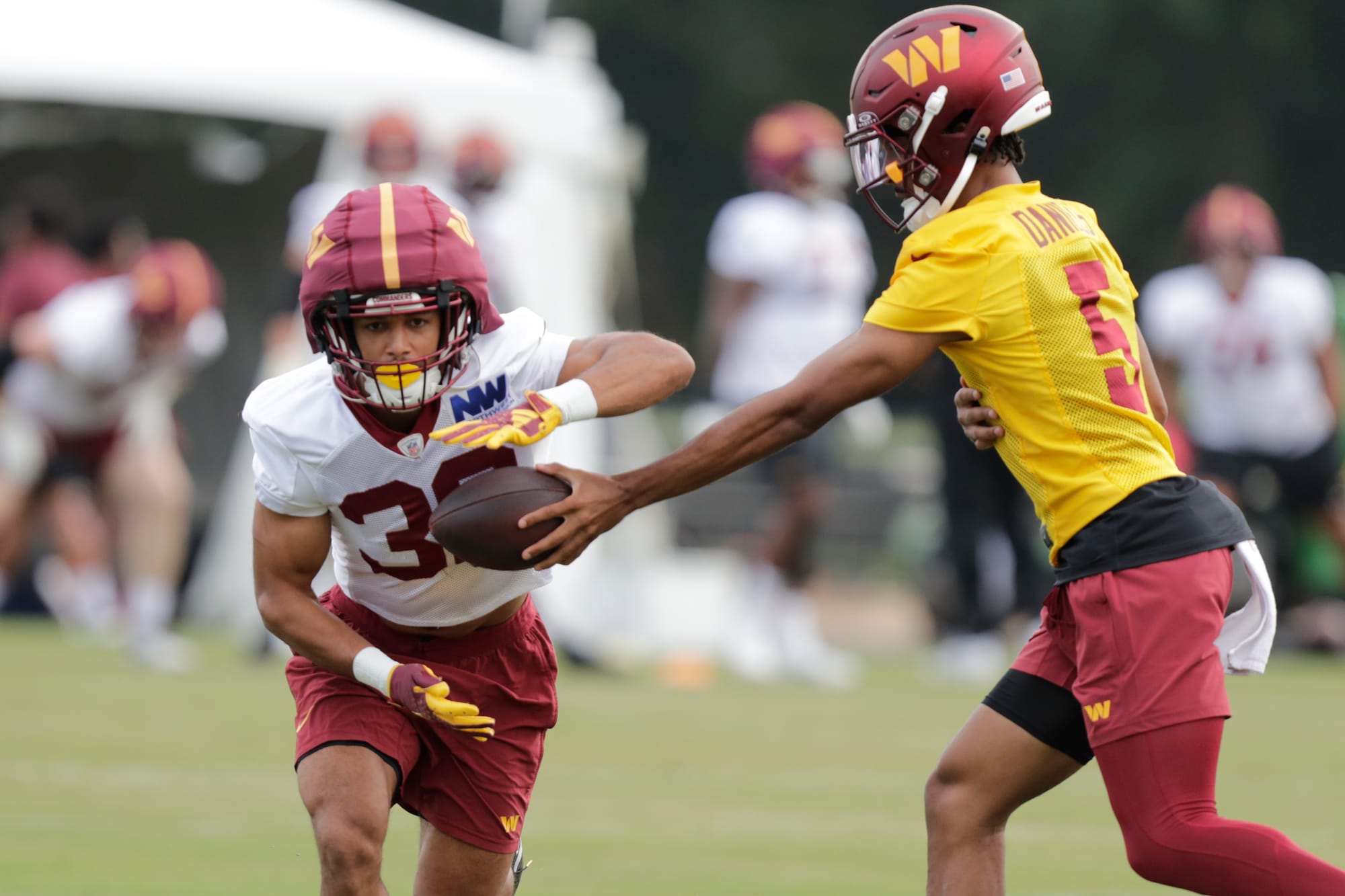The day after he agrees to an eight-figure NFL contract, Austin Ekeler hops onto a video call in a predictably buoyant mood. He is, I tell him, one of the more prominent names we’ve interviewed for this website, which often features under-the-radar athletes. That is not something that can be said about one of the few running backs in modern history who led the league in touchdowns for consecutive seasons, as Ekeler did in 2021 and 2022. But Ekeler is quick to remind me that it wasn’t always that way.
“I was under the radar at one point,” he says.
If anything, that’s an understatement. Ekeler wasn’t just under the radar; he was completely off the radar, a zero-star recruit coming out of high school who attended a Division II college in the middle of nowhere. He wasn’t drafted, but he transformed himself into a star running back with the Los Angeles Chargers. Over the course of seven years, he steadily built himself into one of the most versatile backs in professional football – so much so that the Washington Commanders awarded him with a two-year, $11.43 million shortly before his 29th birthday.
The fact that he could land a deal like this, while playing a position that often grinds down its practitioners before they turn 30, serves as a testament to just how far he’s come. Even after a down year marred by a high ankle sprain in 2023, he was still in high demand when he reached free agency. He had proven he could score both on the ground and in the passing game; he had earned a reputation as a finisher who ran with power and determination every time he touched the ball. And it literally paid off big.
“I had a number in mind, and I was like, ‘OK, I won’t take anything less than this, and if I can’t get it, then I’ll move on and do something else,’” he says. “And that’s not to say that money is everything for me, because as I’ve gotten older, it’s become more about the journey – more about the opportunity to go out there and play… and use the outside resources of the league to help me better myself and move forward.”
Over the course of a forty-minute conversation, Ekeler steers me in a variety of directions, talking me through his ideas for the present and the future, from his app (a celebrity engagement app called Eksperience) to his foundation to an imagined post-football path as an entrepreneur. But if you really want to understand where Ekeler is coming from – if you want to understand why he finishes so strong – you have to start in the past. You have to start on a ranch in Colorado, with a young man and his brother shivering through their chores in the dead of winter.

Part of it was in his genes: While Ekeler never knew his biological father, his mother, Suzanne, had her own athletic background in small-college basketball in Colorado, where she’d earned the nickname “The Animal” for her ferocity and refusal to back down. Suzanne met a man who ran a fencing company and owned an 80-acre ranch in Briggsdale, Colorado.
Suzanne had another son, Wyett (now playing football at the University of Wyoming). Austin found himself put to work at a young age, tending to horses, cows and chickens, and helping his stepfather build mile after mile of barbed-wire fencing. He’d get up at 6 a.m. before school, fight off the mosquitoes, and get to work. There was no time for slacking; when it was time to pick up the hammer, he says, “You’d run to go get that hammer,” he says. ”I actually hated it.”
And yet it instilled him with a unique ethos that guides pretty much everything he does to this day. He views himself as a builder. As a connector. As someone with an inherent understanding of the nature of work, and its rewards.
“When you live the ranch life, you fix everything yourself,” he says. “You learn to do a lot with a little. And when you can do that in society, you create value. You can leverage the things that you have around you to create more value than those things actually provided on their own.”
After Suzanne found herself on her own again with her two boys, she moved the family to Eaton, a small town on Colorado’s northern plains. That’s where Ekeler started playing football. He wasn’t tall, but he had been built tough from those days on the ranch. He spent a lot of time in the dank weight room at Eaton High School. It was known as “The Hole” until Eaton graduate Mitch Unrein, who played nearly a decade in the NFL, spent the money to renovate it.
On the field, Ekeler started breaking records. But the scouts and recruiters didn’t really take notice. So he went to Western Colorado, a Division II school in Gunnison, a mountain town that’s pretty much unreachable once the snow starts to pile up in winter. He majored in business. He imagined a future investing in real estate. He thought about starting his own company someday. And football? “That wasn’t even my first goal coming out of college,” he says. “Growing up, it was just something that helped me get away from life. It was almost a little paradise away from all the responsibility I have.”
Ekeler led Division II in all-purpose yards his junior year. One day, his coach came to him and told him he had a chance to play in the NFL. It was, Ekeler says, “a foreign idea to me.” But once heard it was a possibility, he was determined to maximize his potential. He thought back to those long days building fences, and he came to understand that there was a standard perception of what hard work entailed. But if you went beyond that, “you’re going to stand above 99 percent of people. And I lived in that space, because that was the only thing that was tolerated when you worked on that fence. You’re drenched in sweat.”
And that, he says, gave him a reputation as a leader, even if he wasn’t always the most vocal guy on the team. “I just think because my standard of hard work was different,” he says, “I would push myself so hard that it would encourage everyone around me to be like, ‘Oh man, I got to get myself going.’”

You can feel the energy vibrating through the camera when Ekeler starts talking business. His eyes light up; the words come even faster than before. There are so many ideas that he wants to explore, to maximize their potential while he’s still in the spotlight for football. And so he’s built a team of professionals around him to help realize those ideas.
A mentor once told him that you don’t want your mother playing offensive line for you (even if Ekeler’s own mother might be the exception to the rule). He’s learned how to outsource his ideas to experts who can help him realize his goals while still playing – for his app, for instance, he’s tapped into people with a background in tech. “I needed experts to help me bridge the gap and really bring these things to scale,” he says. “I see the deficiency in society or in the ecosystem that I'm in and I have the idea, but I'm not the expert.”

Ekeler’s foundation – inspired in part by his own high school experience – has donated several weight rooms to high schools in the Los Angeles area. It has also donated youth football equipment, provided essential items to a women’s center, and provided washers and dryers to a school in Watts to help prevent chronic absenteeism.
His Eksperience app – which began beta-testing a 2.0 version in the spring – has targeted what he viewed as “a deficiency in the market for athletes to be able to tap into the value that they create with fans,” by allowing fans to connect more directly with athletes like Ekeler, as well as those in other sports – including those who might be more under the radar then he is. He’s also hosted a Yahoo Sports podcast about fantasy football, a wildly popular pastime that helped raise his own public profile. And there’s plenty more on a series of Google Docs and Drives he keeps adding to week after week.

He does so much, in fact, that his team of business partners and PR representatives is often telling him to slow down, to focus on one thing at a time. But he can’t help it. There’s just so much to build. There’s just so much to fix.
“I want to put things in motion,” he says. “I want to try things. I see a deficiency, and I see some people that can help change it.”
In the summer of 2023, Ekeler organized a Zoom call with a number of top running backs to discuss their place in the free-agent market and figure out how to leverage their place in a market that more and more frequently views them as interchangeable parts. “I said, ‘Let’s bring us together. Let's come up with a narrative,’” he says. “And out of that meeting, we wanted to let everyone know that we were pissed off, and we got that narrative out there.”
That narrative helped Ekeler land the kind of contract that ensures he can continue to have an on-field impact even beyond his 30th birthday. But it also led to an unprecedented number of running backs changing teams and landing lucrative contracts. It was the kind of inefficiency Ekekler is trying to address now that he’s no longer under the radar – now that he has the ability to make a difference.
“I don’t need to be the face of everything,” he says. “I just want to make an impact.”
Advertising and sponsorship opportunities are available. Contact Jim Hoos at jhoos@r1s1sports.com or 602-525-1363.